In recent times, there has been an upsurge in discussions about the merits of hybrid vehicles, and Electric Vehicles emphasizing their importance for Pakistan. Pakistan lags behind the world in terms of availability of Electric vehicles and there are not many options for consumers. So here is a detailed discussion about what are some limited cars and bikes available in Pakistan along with their prices and specs.
Electric Cars
MG Motors
is a British car company. It was introduced in Pakistan by Javed Afridi, CEO of Haier Company. MG Motors has recently introduced its all-electric vehicle in Pakistan by the name MG ZS EV which is considered the only Electric vehicle that can be bought locally in Pakistan.
MG ZS EV
- Full Charge Coverage 320 KM
- Charge Time 0-100% 8 Hours with 7kW Home Charger; 54 Minutes 0-80% using a 50kW Public Charging Station
- CATL Ternary Lithium Battery
- Synchronous Motor
- Price Rs 6,250,000/-
Nur-E 75
On the occasion of Pakistan’s 75th Independence Day, Dice Foundation, a US-based Non-Profit Organization in collaboration with various local institutes of Pakistan, has launched a prototype of an EV dubbed NUR-E 75. The mass production of the locally produced EV will start in 2024.
Nur-E 75
- Full Charge Coverage 210 KM
- Charge Time 0-100% 2 Hours
- 35kWh Capacity Battery
- Electric-motor
- Expected price Rs 2,000,000/-
Rinco:
Rinco Aria was introduced in Pakistan by Nayyar Motors, which only sells wholly built units in Pakistan by importing a vehicle from China. There is a hefty amount of duty on the car, due to which the price is much higher than expected. However, the car is said to make its mark on the automotive industry of Pakistan.
Rinco Aria
- Full Charge Coverage 200 KM
- Charge Time 0-100% 6 Hours
- Lithium-Iron Phosphate Battery
- Electric-motor
- Price Rs 2,400,000/-
Audi:
Audi is considered a luxury brand in Pakistan. Recently they launched their all-electric car named Audi E-Tron in Pakistan. The company aims to give benefits of new innovative technology to its consumers. The SUV electric vehicle is spacious and fully loaded with modern features.
Audi E-Tron
- Full Charge Coverage 230 KM
- Charge Time 0-100% 4 Hours
- Max Speed 190-200 KM
- Lithium-Ion Type Battery
- Electric-motor
- Price Rs 21,000,000/-
Audi e-tron GT Quattro
- Full Charge Coverage up to 487 KM
- Charge Time Battery from 5 % to 80% in 22.5 min
- Max Speed 245 km/h
- Lithium-Ion Type Battery
- Electric-motor
- Price Rs 21,150,000/-
Audi RS e-tron GT
- Full Charge Coverage up to up to 433-472 KM
- Charge Time Battery from 5 % to 80% in 22.5 min
- Max Speed 249 km/h
- Lithium-Ion Type Battery
- Electric-motor
- Price Rs 29,595,000/-
Electric Bikes
Vlektra:
Vlektra is an electric vehicle startup located in Karachi, Pakistan. However, we don’t know much about their facilities, factories, or production lines. Initially, they introduced three models of their E-bikes: Bolt, Retro, and Retro 1969.
Vlektra Retro
- Full Charge Coverage 80-100 KM
- Charge Time 0-100% 3 Hours
- Lithium-ion battery with a life of 5 years
- 1500w electric-motor
- Price Rs 299,000/-
Vlektra Bolt
- Full Charge Coverage 80-100 KM
- Charge Time 0-100% 4 Hours
- Lithium-ion battery with a life of 5 years
- 2000w electric-motor
- Price Rs 449,000/-
Vlektra 1969
- Full Charge Coverage 80-100 KM
- Charge Time 0-100% 4 Hours
- Lithium-ion battery with a life of 5 years
- 2000w electric-motor
- Price Rs 449,000/-
Jolta Electric:
The first locally manufactured electric bike in Pakistan is the eBike from Jolta Electric, and the company just announced that it had delivered 10,000 units to Pakistani customers in 2021.
Jolta EBike – JE-70D
- Full Charge Coverage 80 KM
- Charging Time Overnight
- Battery Installed Dry Cell Battery
- 1000w electric-motor
- Price Rs 120,000/-
Jolta EBike – JE-70L
- Full Charge Coverage 80-90 KM
- Charge Time 0-100% 3 Hours
- Li-Ion Phosphate Battery With A Life Of 5 Years
- 1000w electric-motor
- Price Rs 172,000/-
Jolta EBike – JE-100L
- Full Charge Coverage 100+ KM
- Charge Time 0-100% 3-3.5 Hours
- Li-Ion Phosphate Battery With A Life Of 5 Years
- 1500w electric-motor
- Price Rs 192,000/-
Jolta – JE-Scooty
- Full Charge Coverage 80 KM
- Charging Time Overnight
- Battery Installed Dry Cell Battery
- 1000w electric-motor
- Price Rs 130,000/-
The Emergence of Hybrids in Pakistan
Interestingly, many Pakistanis have been driving hybrid vehicles for over a decade, primarily due to the import of used Japanese Domestic Market (JDM) vehicles, a trend that local assemblers have consistently avoided. Hybrids themselves are not a new concept, with this technology having been in existence for more than 26 years. Nevertheless, in Pakistan, due to the absence of appropriate regulations in the automotive industry and a lack of commitment from those in authority to promote technological progress, the country has yet to fully embrace hybrids and other fuel-saving technologies that are considered standard in most global markets.
Fuel-Saving Technologies Unavailable in Pakistan
In Pakistan, there’s a noticeable absence of several fuel-saving technologies that are prevalent in other parts of the world. This discrepancy highlights the country’s technological lag in the automotive industry, as it still adheres to Euro-2 emission standards and produces Euro-2-compliant cars, putting it approximately 22 years behind the global automotive curve.
Cylinder deactivation is another technology notably absent from Pakistan. This innovation allows specific cylinders in an engine to be deactivated during lower-speed operation, reducing fuel consumption, emissions, engine noise, and vibration. The result is a smoother, more efficient driving experience.
Gasoline Direct Injection (GDI) is yet another technology that could significantly benefit Pakistan’s automotive industry. GDI engines inject fuel directly into the combustion chamber at high pressure, offering higher fuel efficiency and lower emissions compared to traditional port injection. Moreover, GDI engines are quieter and smoother in operation.
Continuously Variable Transmissions (CVTs), lightweight and efficient alternatives to traditional automatic or manual gearboxes, are scarcely available in locally assembled vehicles in Pakistan. These transmissions utilize pulleys instead of gears, improving fuel efficiency. However, they are primarily offered with larger engines, limiting their potential to enhance fuel economy in smaller vehicles.
A 7-speed transmission, often found in Chinese vehicles in Pakistan, offers various benefits, including improved fuel efficiency, increased engine power, smoother shifting, and better acceleration. With additional gear ratios, the engine operates optimally for different driving situations, resulting in improved fuel economy, enhanced torque and power during shifts, and smoother transitions between gears.
Eco-idling or engine start/stop technology, is another fuel-saving technique not commonly found in Pakistani vehicles. This feature automatically shuts off the engine when the vehicle is idle for an extended period, relying on a battery-powered electric motor to maintain power. When the driver accelerates, the engine restarts, reducing fuel consumption and emissions by preventing unnecessary idling.
The Potential of Hybrids in Pakistan
Implementing these technologies in Pakistan could yield substantial savings in fuel import costs and significant environmental benefits. However, it is imperative for policymakers and industry stakeholders to recognize the urgency of taking action to advance the local automotive sector. By embracing these fuel-saving technologies and promoting hybrid and plug-in hybrid vehicles, Pakistan can make significant strides toward a more sustainable and efficient automotive future.
In doing so, it can reduce its dependence on imported fossil fuels, lower emissions, and enhance the overall quality of transportation in the country. The time for action is now, and Pakistan has the opportunity to lead the way in sustainable automotive innovation.
Read More:

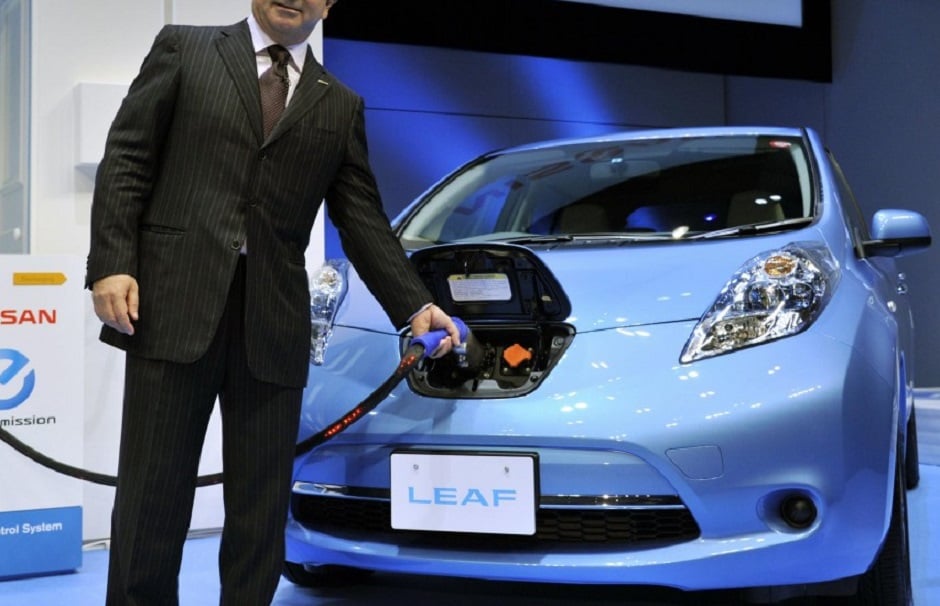
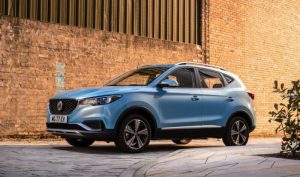
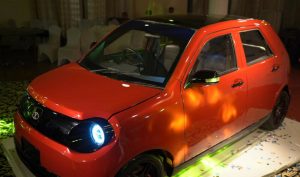
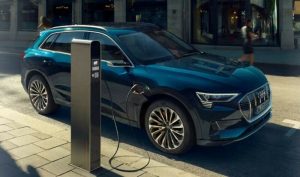
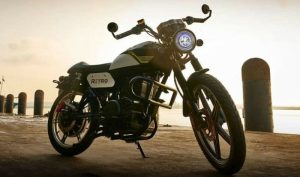
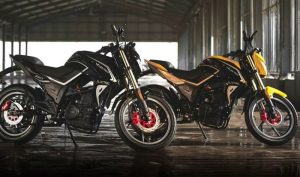
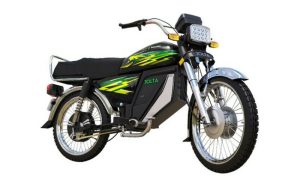
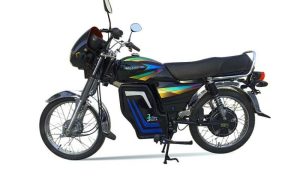



 Microsoft to Remove Wordpad from Windows After 30 Years
Microsoft to Remove Wordpad from Windows After 30 Years